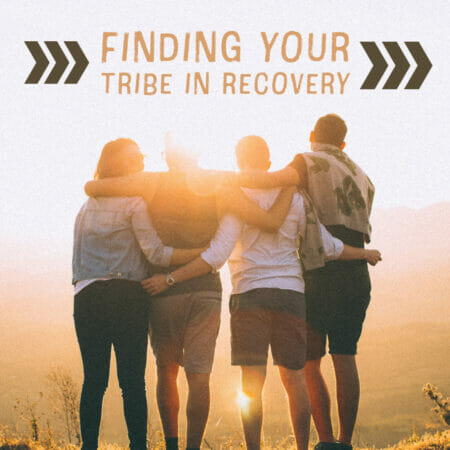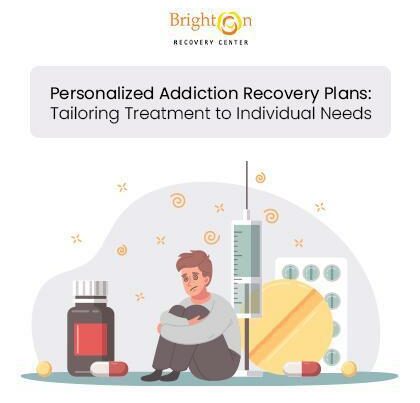Finding Your Tribe in Recovery

Although addiction can often be a very isolating and debilitating experience for someone, that doesn’t mean that the effects of addiction are confined to just one person. The effects of addiction can be intense for the people suffering from addiction directly, as well as their friends, family, and loved ones. While someone may feel isolated in their experience, addiction and addiction recovery are inherently communal efforts. Finding one’s own tribe in recovery is important in challenging these feelings of isolation, as well as establishing a more complete picture of someone’s recovery model.
Someone’s tribe in recovery is made up of those people who are supportive and understanding in the recovery process. They are a group where someone feels safe and encouraged to talk about their addiction and also to express their own identities and difficulties in order to confront the many trials of addiction as a group. Tribes are constantly developing their own stories and bringing these successes to the group in order for each member to find their own path. Finding one’s tribe can take time, but it is a profound part of the recovery experience.
Dangers of Isolation
Without accessible outlets during recovery, many of the emotional aspects of addiction recovery can become hard to deal with. Feelings of isolation can set in if someone isn’t engaging with social circles, or if they feel distant from the people involved. This can further accentuate feelings of anxiety and depression, or at least add to the overall stress that comes with addiction recovery.
Isolation can be a key factor that needs to be addressed in order to continue with recovery in a meaningful, impactful way. Having a place of belonging can be a major motivational tool for many people in recovery, especially while someone is reestablishing their homeostasis, as well as beginning to define their own identities outside of addiction. Having a positive relationship with a tribe in recovery, then, is having a positive relationship with the recovery process as a whole.
It Doesn’t Have to Be the First
The first group therapy session that someone attends may not shape up to be the tribe that they need. In these situations, it is important to voice one’s own desires in order to help them find the tribe where they do fit in and feel like they belong. It is okay if someone tries a few different groups before finding the tribe that works best for them, so long as each person remains positive and open to the various recovery communities around them.
Each group will operate a little bit differently, and each group is composed of unique individuals with their own interests, goals, and stories. A tribe doesn’t have to necessarily all share the same hobbies or histories, but it is best if all members therein hold an open and accepting mind to the differences and similarities of those around them. Not only is this important for an established tribe, but also for each person searching for their own tribe.
Elements and Goals of an Effective Tribe
Effective tribes are accepting of the different people that attend each meeting. They are places that foster an atmosphere of acceptance and community that is needed when addressing many different facets of addiction recovery. They are places that support and encourage openness about sobriety and the difficulties involved. Ideally, they meet in established places where people can meet face-to-face in order to establish this support on a personal level, as well as generate an increased feeling of acceptance while fostering communication skills in voice and body language.
Effective tribes, however, are designed to support comfort, but not complacency. Members of each group are still encouraged to challenge each other, which further emphasizes the need for an accepting, supportive community. These challenges aren’t about competition or proving who is somehow “more sober,” but rather, to encourage each member to continue looking to their own next step in recovery.
This should be a shared mentality–one that fosters the development of goals and success and that directly acknowledges the life-long nature that addiction recovery often demands. Finding a group that not just shares in a comfortable space, but continues to push and challenge their ideas of success with constantly evolving goals and methods is paramount. These challenges are then met by utilizing the various different stories and experiences that make up the tribe, promoting inclusion and directly confronting isolation as a whole.
Addiction recovery involves many other people. This includes professionals, family members and loved ones, as well as an effective tribe where someone can feel comfortable exploring the vulnerabilities and shortcomings in recovery while sharing in their strengths. It is a place not just where someone feels like they belong, but is necessary for the betterment of everyone involved. Finding this tribe can take time, but an effective tribe in recovery has a huge impact on the effectiveness of someone’s recovery as a whole.
If you or a loved one are struggling with an addiction, Brighton Recovery Center can help. Building its large, 6 building campus on the core philosophy of finding and bolstering this sense of community in each person, Brighton Recovery Center creates an atmosphere where each person has the opportunity to explore many different avenues of recovery and help each person find their own tribe. Individual and group therapies are available, as well as a recreation center that promotes many different therapies and life skills by providing a fully equipped gym and yoga studio, while also offering the opportunity to gain real-world experience and life skills by helping out in the coffee shop or thrift store. This communal, holistic approach is instilled in each person as they explore their own identities both in recovery and outside of the recovery bubble. For more information on how Brighton Recovery Center can help you, call to speak to a professional today at (844) 479-7035.



